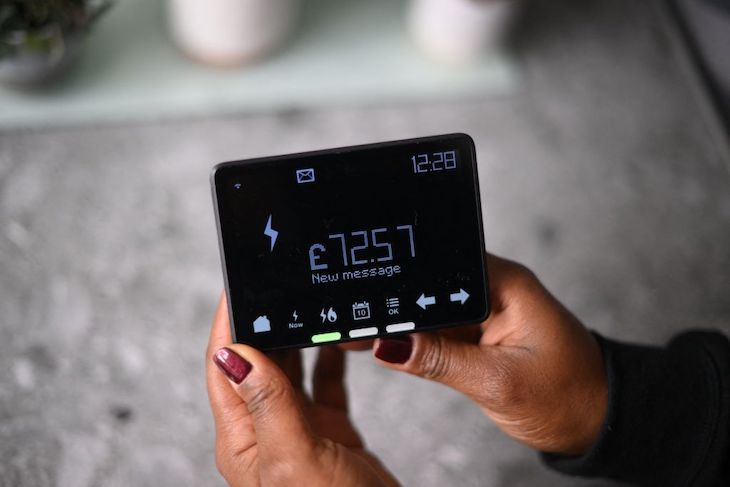Smart meters were meant to make our lives easier. They were designed to help us reduce energy consumption and cut bills. Over the last five years, the government has been pushing energy firms to install these meters as quickly as possible. Millions of homes have been fitted with one. The flashing screen monitoring how much power is being used has become a ubiquitous feature in households across Britain. We’re constantly nudged to switch off a couple of lights, or skip a load in the washing machine, as we see what this energy use is costing us. But there’s a big problem with smart meters: millions of them don’t work properly.
For too long, the problem with smart meters has been ignored
Nearly four million smart meters in the UK are malfunctioning, according to figures released by the Department for Energy Security and Net Zero (DESNZ) earlier this year. But while that number is shocking, the true tally of dodgy smart meters could be even higher.
Martin Lewis, the consumer campaigner, has written to the Energy Secretary Ed Miliband this week arguing that 19 per cent, or almost a fifth, of smart meters might not be working correctly, far more than earlier estimates of ten per cent. Lewis said that the government’s estimate ‘only includes the narrow definition of smart meters…not sending automatic readings to the supplier’. But research by Lewis’s consumer website Money Saving Expert suggested that other issues with smart meters – including incorrect data on tariffs or usage, and prepay top-ups that don’t register correctly – were being ignored.
Despite this, the smart meter rollout continues at a rapid pace. The reason is that energy companies are under so much pressure to install them as quickly as possible that they have little time for repairs. The result? People are being sent absurdly high bills, sometimes running into tens of thousands of pounds.
In February, Ofgem – the energy regulator – launched a scheme that committed suppliers to repairing broken smart meters for free, but not all firms have signed up.
For too long, the problem with smart meters has been ignored. But is that about to change? After all, politicians turn a blind eye to Martin Lewis at their own peril. The consumer champion is a hugely popular and respected figure, so his intervention could prove crucial in finally getting the government to wake up.
Of course, even if ministers do lurch into action, the man who matters, Ed Miliband, is probably too busy threatening to close down oil fields, or choosing the most scenic countryside for new wind farms, to pay much attention. If Miliband was willing to think things through properly, however, he might realise the smart meter fiasco reveals some fatal flaws in the UK’s Net Zero strategy.
What is becoming clear is that the government, as so often, has chosen the wrong technology. A 20 per cent failure rate, if true, would not be acceptable for a washing machine or a toaster, or any other type of household appliance; in a car it would be lethal. Such a product would have been pulled from the market years ago. Yet because smart meters are seen as ‘green’ the usual standards no longer seem to apply.
The estimated £13.5 billion cost of the rollout of smart meters has been funded by the energy suppliers themselves, and will be recouped through higher bills. This, of course, comes at a time when energy bills are already soaring, and are going up yet again later this year. In reality, smart meters are not very smart after all. They are the wrong technology, imposed by diktat, wildly expensive, and don’t even work properly. They illustrate everything that is wrong with the UK’s drive for Net Zero. The time has surely come to scrap the smart meter targets until they can be replaced with something better.







Comments